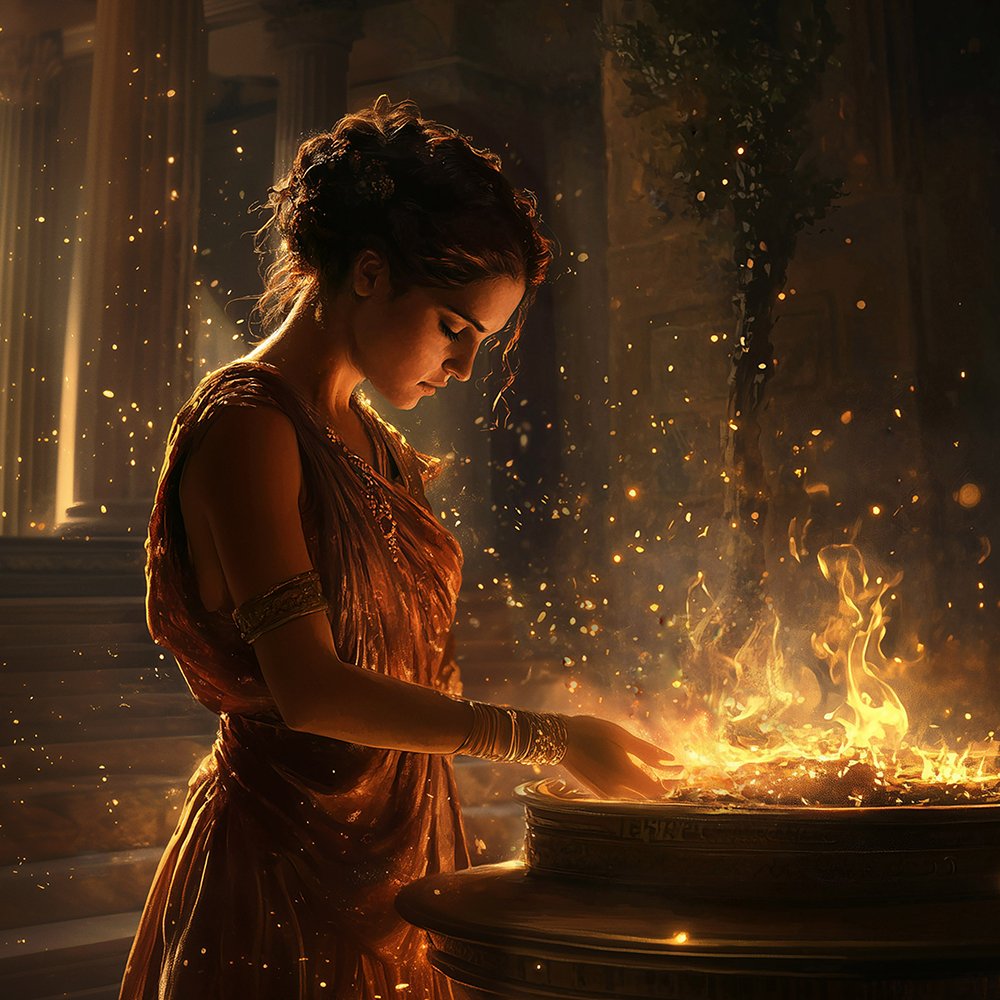Hestia/Vesta
Hestia, the gentle guardian of the hearth, embodies the sacred flame that warms both home and spirit. Her quiet strength reminds us of the power in stillness and the importance of tending to our inner sanctuaries with devotion and care.
Hemera
Hemera, the lesser-known Greek goddess of day, symbolizes the transition from darkness to light, heralding the dawn and awakening life each morning. As the daughter of Nyx and Erebus, Hemera plays a crucial role in Greek cosmogony, embodying light, hope, and renewal. Though her myths are few, her significance lies in what she represents—prosperity, vitality, and the enduring power of light over darkness. Hemera’s timeless presence continues to inspire, reminding us of the boundless potential each new day holds and the delicate balance between life and death.
Cybele, the Great Mother
Cybele, known as the Great Mother or Magna Mater, is a powerful symbol of fertility and the untamed forces of nature in ancient mythology. Originally revered in Phrygia, her worship spread across the Greco-Roman world, where she was celebrated for her connection to the earth’s cycles. Her myths, especially the tragic tale of Attis, underscore themes of rebirth and renewal. Cybele’s enduring legacy reflects humanity’s deep reverence for the nurturing and transformative powers of the natural world.
Athena
Athena, the revered goddess of wisdom, intelligence, and war, holds a significant place in ancient mythology. Known for her strategic mind and unwavering commitment to justice, she was often depicted in her warrior's armor, accompanied by an owl, symbolizing wisdom. Athena's unique birth story, emerging fully grown from Zeus's head, highlights her profound connection to intellect and rational thought. Her influence extended beyond warfare, as she was also a patron of the arts and crafts, embodying the ideals of wisdom, creativity, and civilization.





